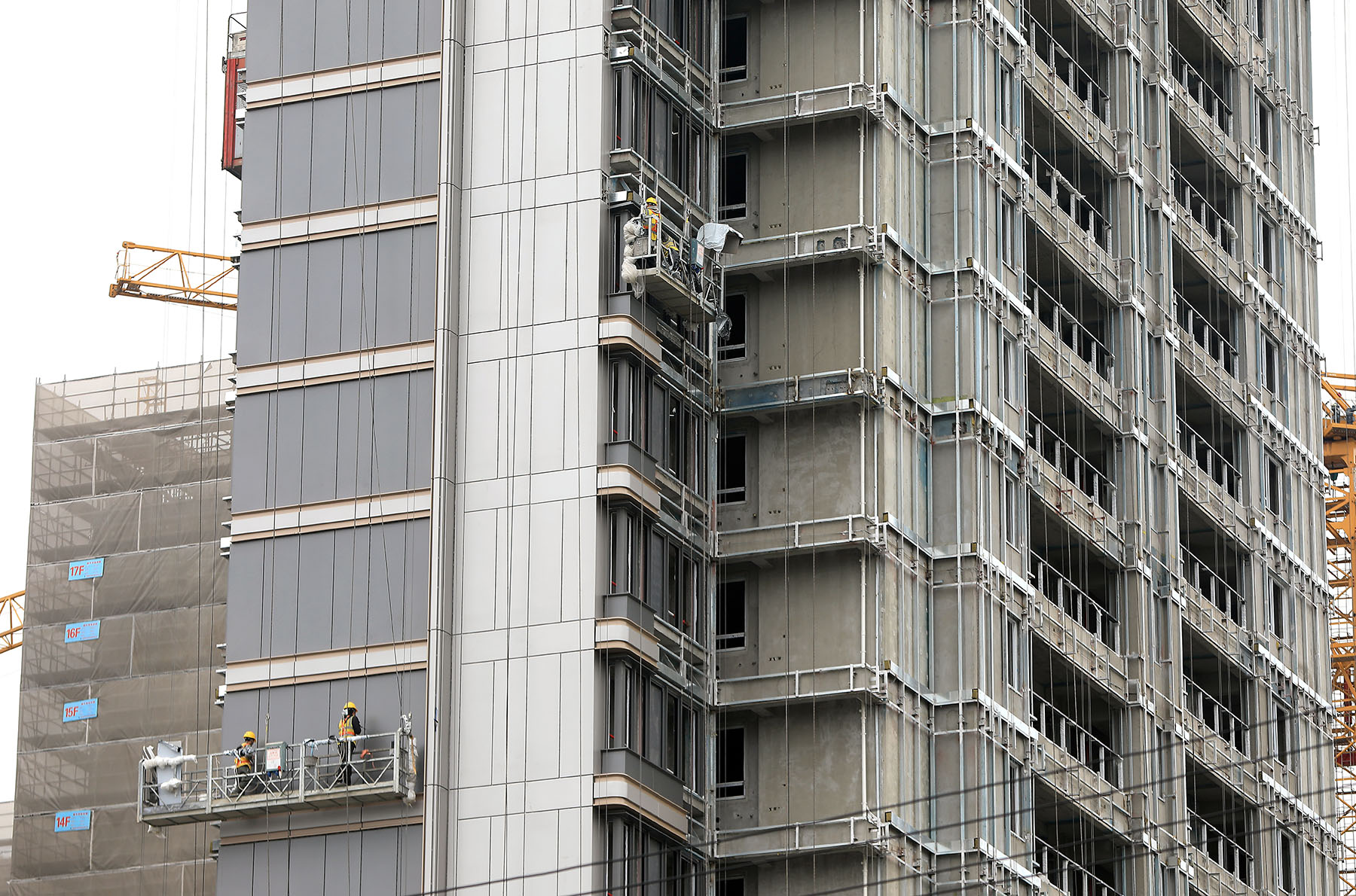
Preferential taxation policies unveiled by Shanghai and Beijing are expected to further enable the recovery of local real estate markets by lowering purchase costs and boosting market confidence, industry analysts said on Tuesday.
"The policies, which are aligned with the central government's deployment, have shown the municipal governments' resolution in stabilizing the property market," said Liu Zhuowei, an analyst with the China Index Academy.
READ MORE: Preferential tax policy implemented to spur residential property sector
"The adjustments in taxation will be helpful in both releasing potential demand for improved housing and speeding up the circulation between new and the used home markets by lowering transaction costs and simplifying taxation procedures. The new policies will reduce personal income taxes and deed taxes in home transactions, which can make trading costs more reasonable and help in stabilizing market expectations," Liu said.
Yan Yuejin, deputy head of the Shanghai-based E-House China R&D Institute, said he expected other top-tier cities to follow suit by unveiling similar measures to ease taxation.
Taking effect from Dec 1, Shanghai's policies include unifying housing standards and cutting the home transaction tax, which are expected to actively support people's inelastic demand and requirements for better living, according to a notice issued on Monday.
The Beijing edition, published late on Monday, also has unified standards for identifying ordinary and non-ordinary housing.
Value-added tax has been exempt for all residential apartments as long as the properties are retained by sellers for two years or longer, the nation's two largest cities announced.
In line with the nationwide measures, a favorable 1 percent deed tax has been extended to apartments sized at or below 140 square meters against the previous requirement of 90 sq m or below for both first and second homes, according to the notices.
"Since last year, a number of measures have been introduced by the departments of land, finance and taxation, and these supportive measures are believed to effectively activate market demand, improve market confidence, optimize supply and demand, and help Shanghai's property market become stable and healthy," Yan said.
Zhang Dawei, chief analyst at Centaline Property Agency, said there have been visible positive signals in Shanghai following the supportive measures.
"Figures released by the National Bureau of Statistics last week showed that Shanghai's pre-owned housing market had reversed the downward tendency and reported a small-digit growth month-on-month. As of Sunday, about 15,000 units of pre-owned flats changed hands in the secondary market, and preliminary deals signed online during weekends exceeded 1,000 per day in the past three weeks," said Zhang.
According to Liu, as many as 4,909 units of newly built residential apartments were traded across Shanghai during the first 15 days in November, a year-on-year growth of 58.5 percent.
ALSO READ: Shanghai's real estate market showing signs of recovery
As the supportive measures percolate, Zhang said the transaction enthusiasm will last until the end of the year, which is helpful in consolidating both trade volumes as well as prices in the housing market.
Likewise, measures introduced for home transactions since the beginning of this year have reportedly enhanced Beijing's market activity in terms of pre-owned home transactions.
As many as 17,000 units of used apartments changed hands in October, the highest in 19 months and up 31 percent month-on-month, the Beijing Evening News reported, citing data from the Beijing Municipal Commission of Housing and Urban-Rural Development.
"The previous standards on ordinary and non-ordinary housing no longer fit the current real estate market, which has seen major changes in supply and demand. The unified standard allows more homebuyers to enjoy the favorable tax and home mortgage policies, and their home transaction costs are further reduced," said Zhao Xiuchi, an expert on real estate research at the Capital University of Economics and Business.
The new standard will facilitate housing market recovery as well as allow more homebuyers to purchase their dream homes at a lower cost, Zhao added.


